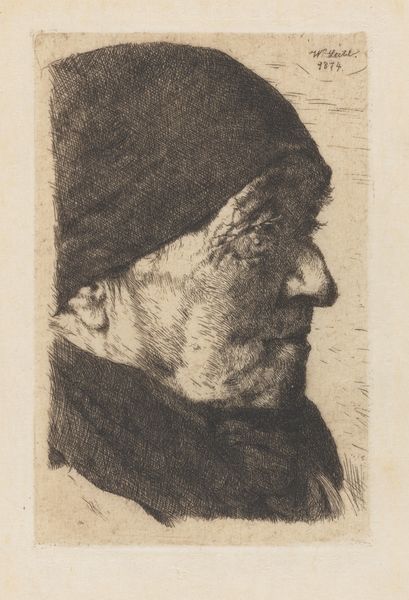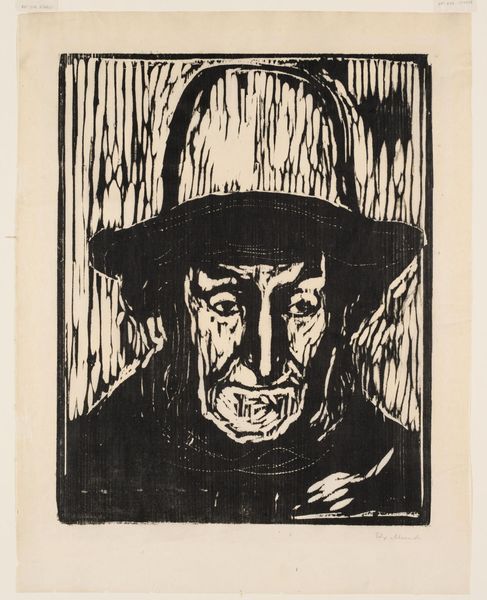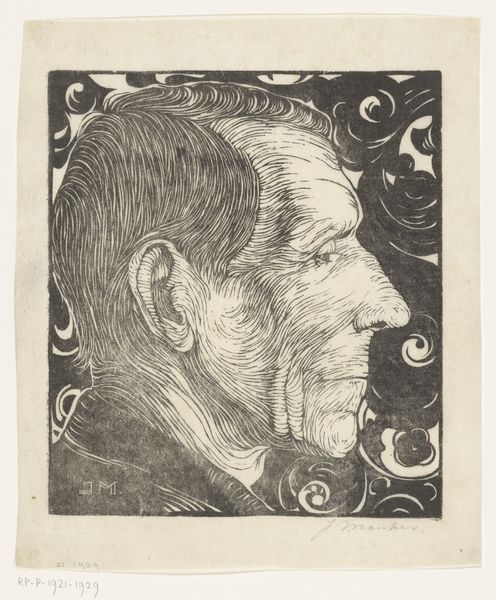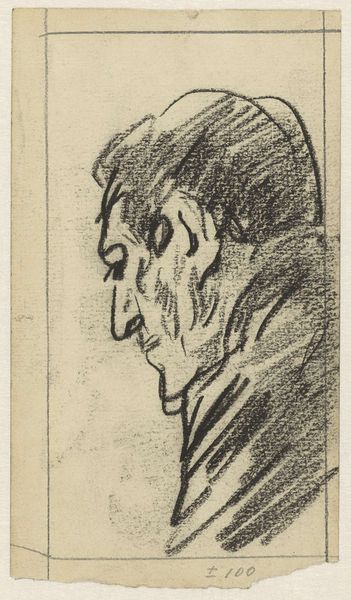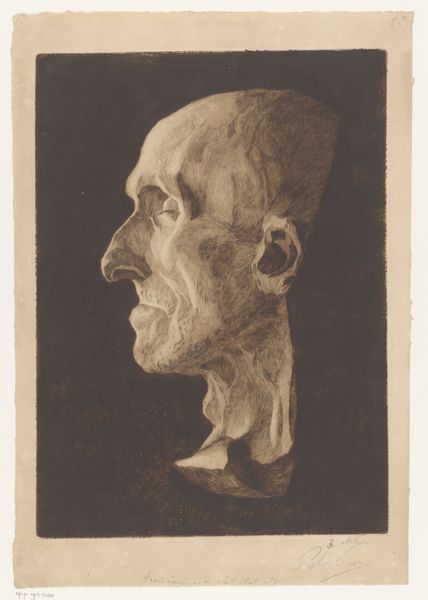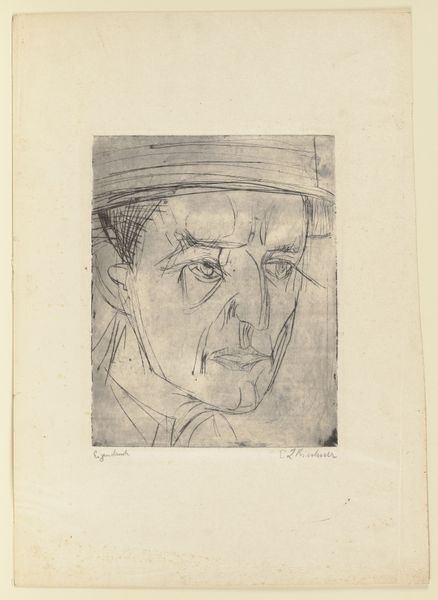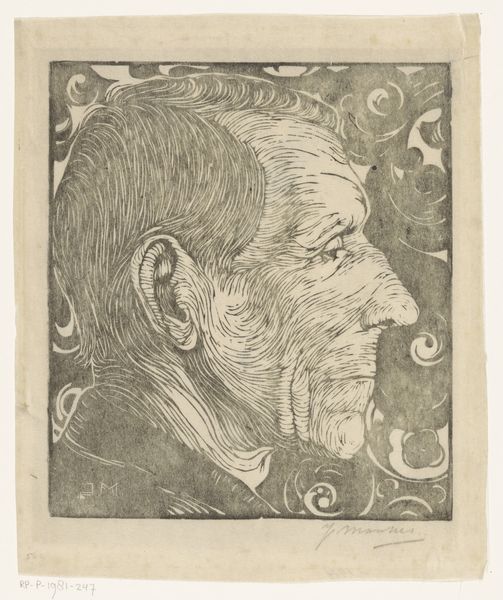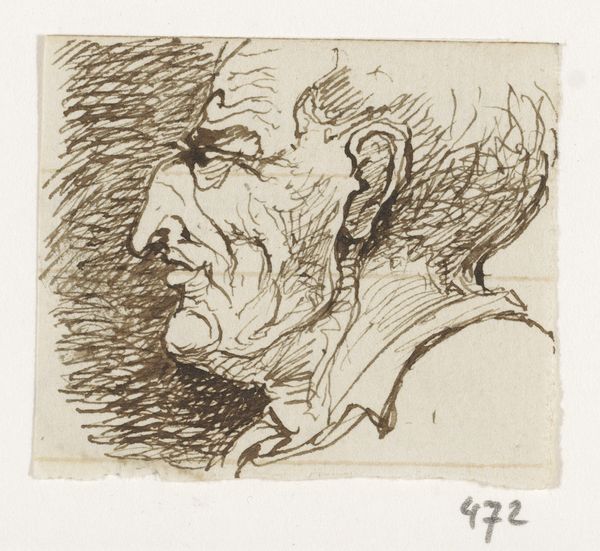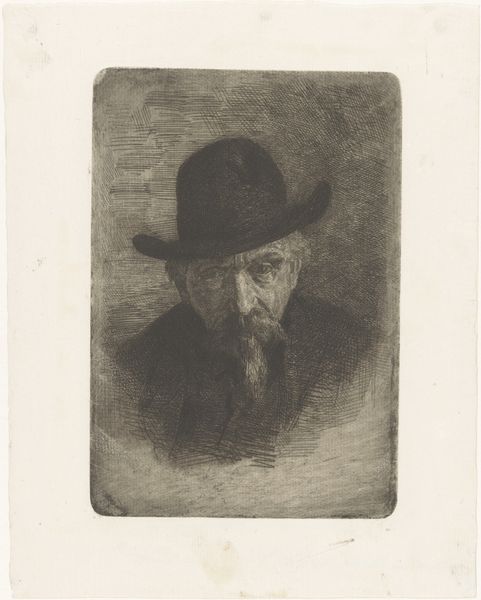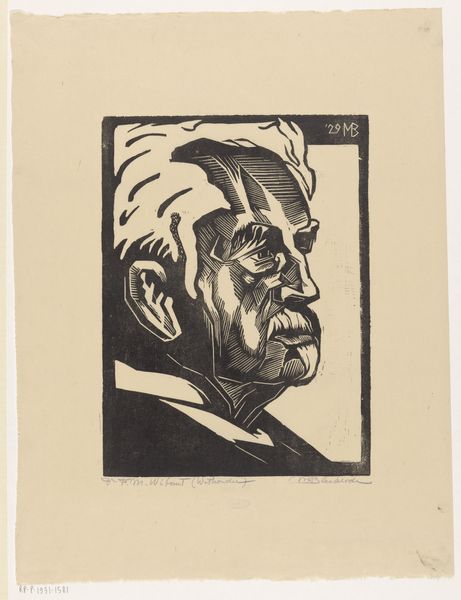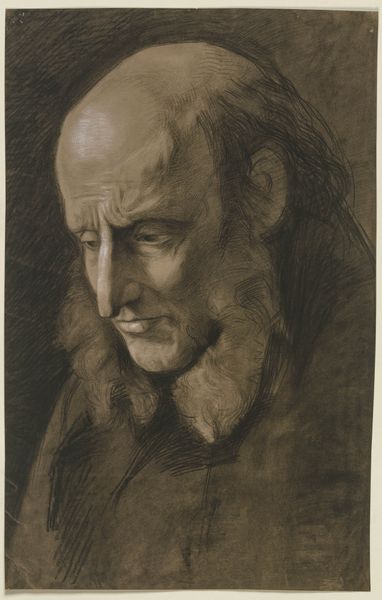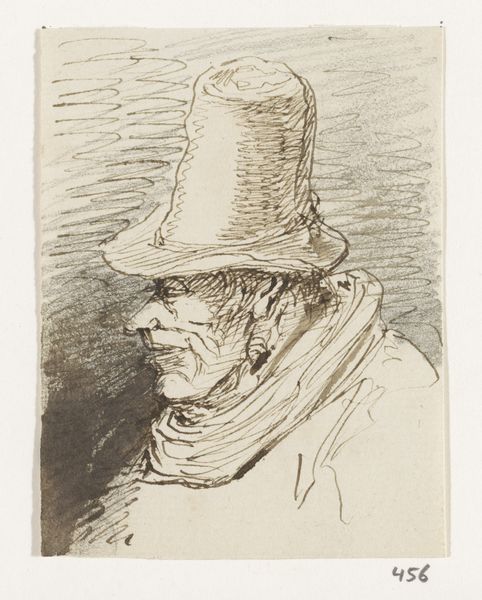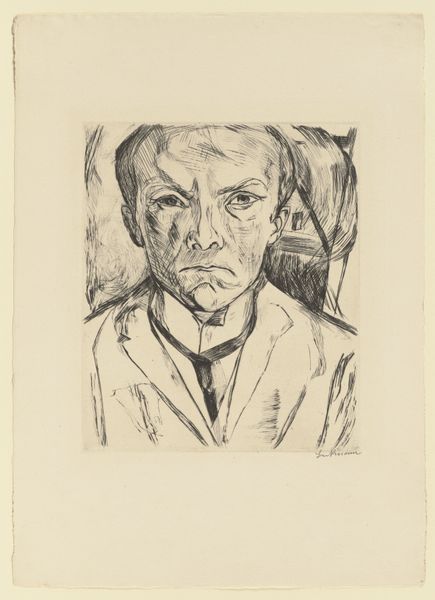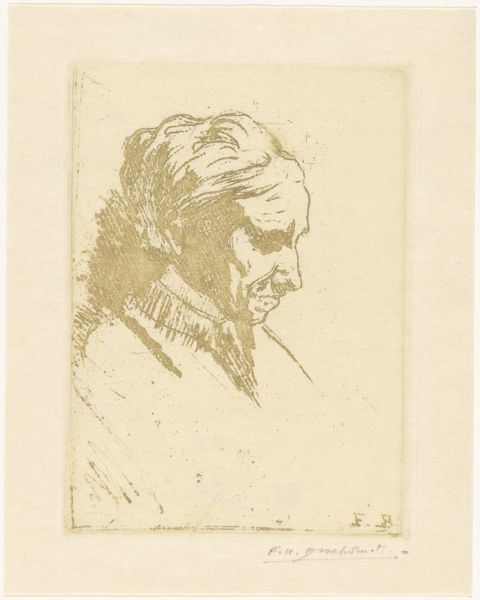
print, etching
#
portrait
#
ink drawing
# print
#
etching
#
realism
#
monochrome
Dimensions: height 318 mm, width 233 mm
Copyright: Rijks Museum: Open Domain
Henri-Charles Guérard created this print, Head of a Cleric, using lithography, a process that democratized image-making in the 19th century. Lithography involves drawing on a flat stone or metal plate with a greasy crayon, then treating the surface so that ink adheres only to the drawn areas. This allows for relatively quick and easy reproduction, quite unlike the laborious process of etching or engraving. Here, Guérard exploits the medium’s capacity for bold contrasts and grainy textures, building a somber portrait from just a few simple strokes. The result has a direct, almost brutal quality. Look closely, and you’ll see how the artist has used the lithographic crayon to build up a sense of volume and shadow, capturing the cleric's weathered face. The print medium was ideally suited to the rapid social changes of the era, allowing artists to reach a broader audience and comment on contemporary life. Guérard’s choice of lithography reflects a desire to engage with these new possibilities, and to challenge traditional notions of artistic value.
Comments
No comments
Be the first to comment and join the conversation on the ultimate creative platform.
